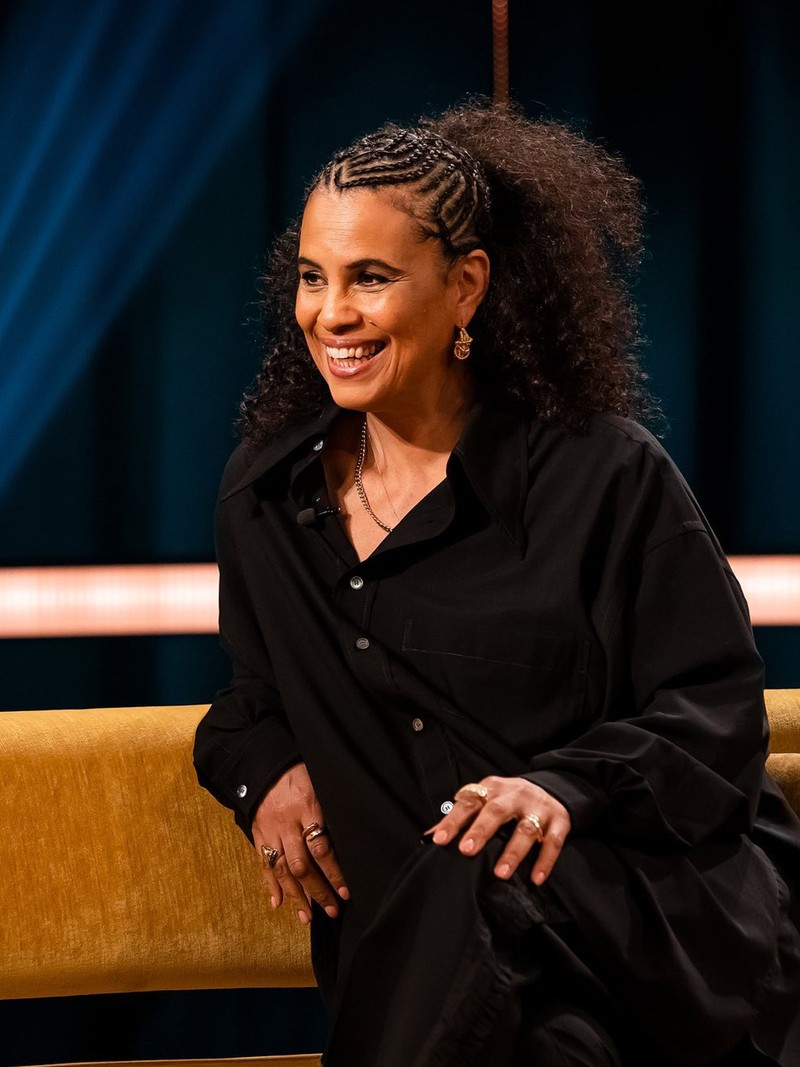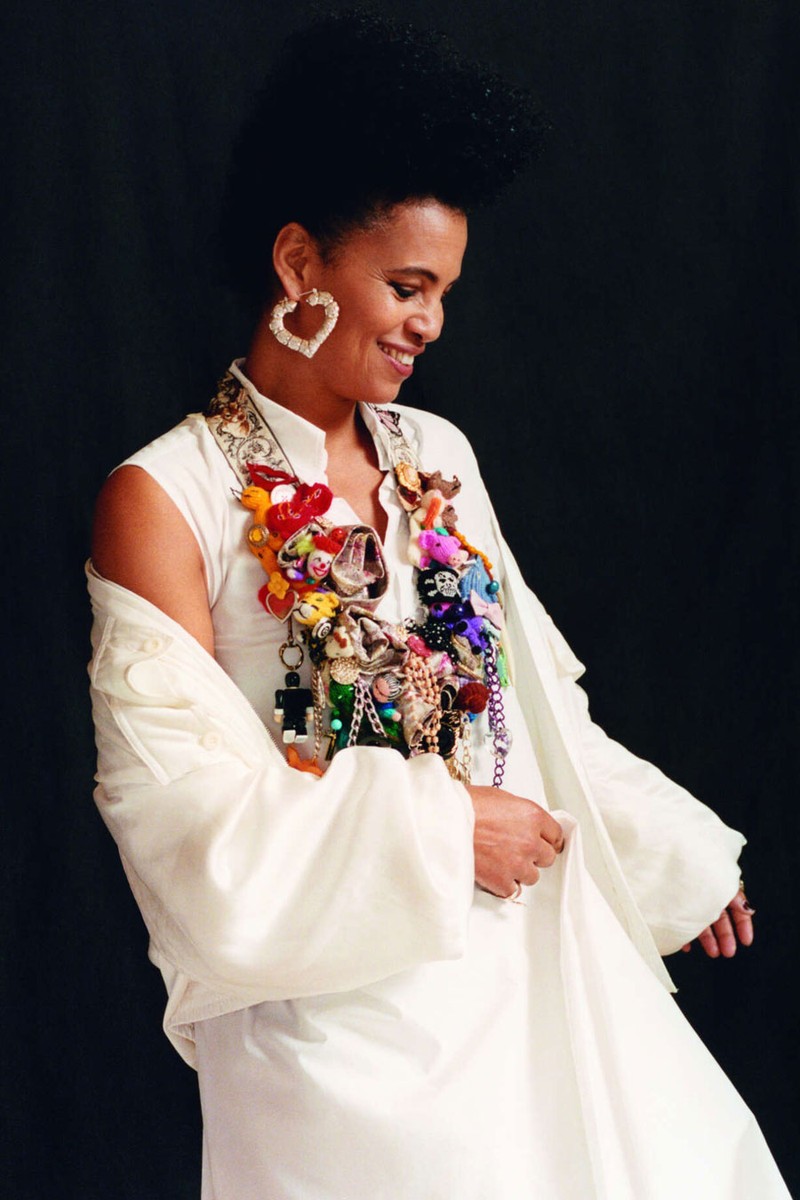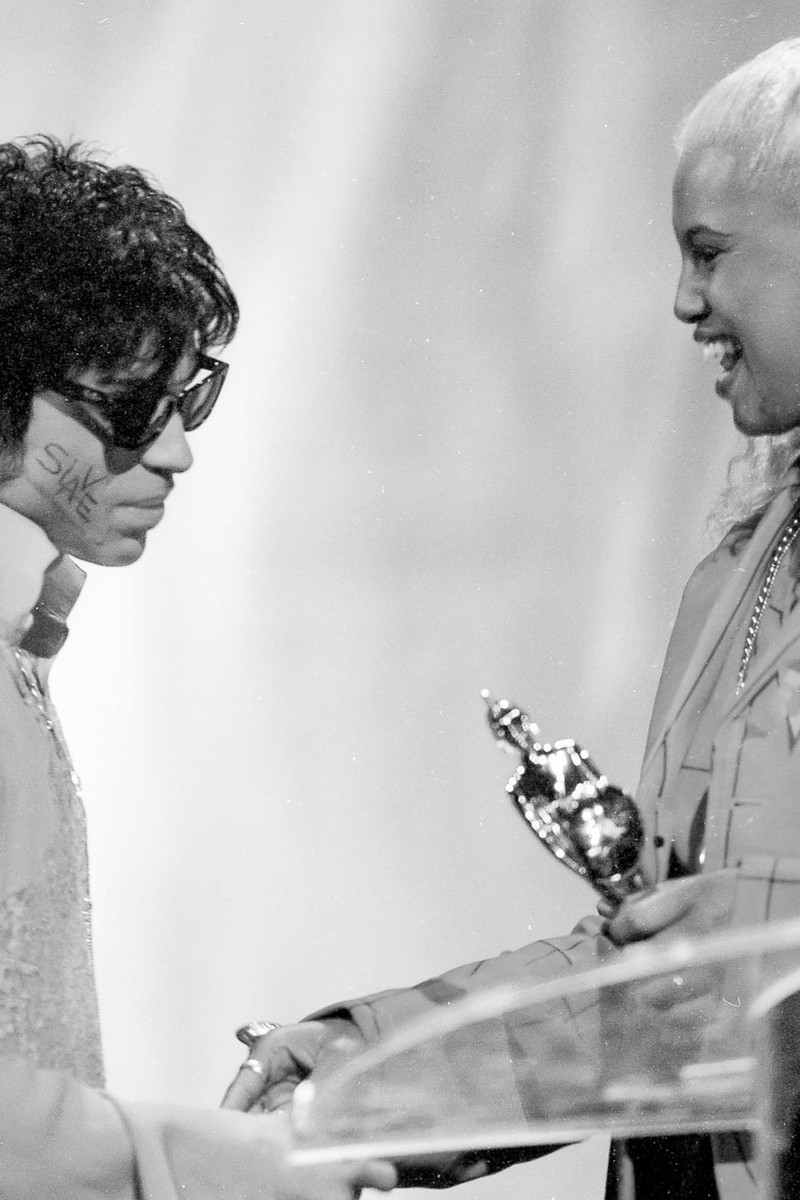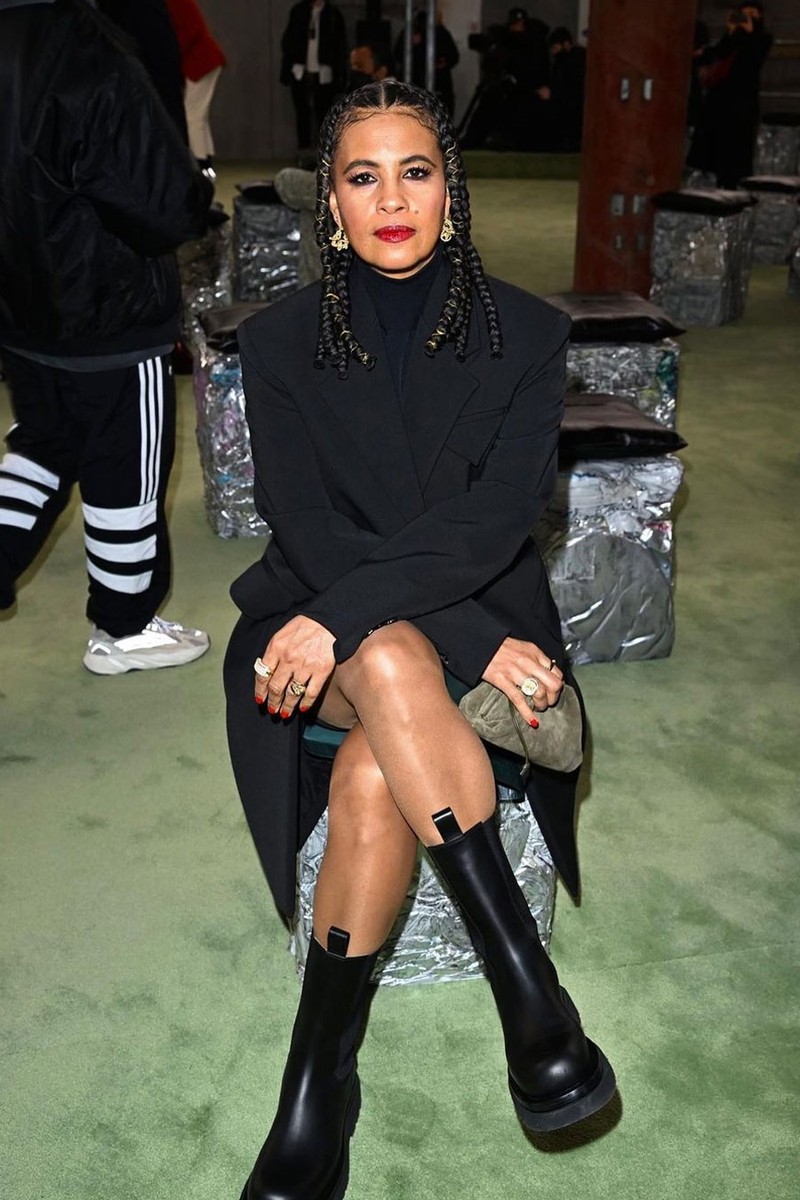
Chapters In My Life: Neneh Cherry
Chapter One:
A Music-Filled Childhood
“My first memories are in Sweden. I was born in Stockholm in 1964 and I've often gone back there often since I moved to London as a teenager. It's always been a huge part of my life. In 2004, I moved to Stockholm and lived there for close to ten years with my husband and two of my children. But I suppose I’ve spent a fair amount of time questioning whether I’m really Swedish and, also, who I am when I'm Swedish. When you move around like I did and have continued to do in my adult life, ‘making home’ is something you do quite easily because it's something you carry with you. You’re sort of nomadic, so your identity becomes a quick fix to help you feel like you belong somewhere. That’s why, on a deeper level, I’ve had some sort of relationship of recognition with Sweden – because it's always been there, like New York and London.
“Growing up, our home was filled with music. We never really had wallpaper – we had music. It was as essential as water. It’s just always been part of everyday life. My father ended up being a musician after he came to Europe from Sierra Leone. He was studying to be an engineer, but music got him. My mother was an artist and very much on the creative scene in Stockholm, which was led by a lot of the jazz and free jazz movement. When I think back, there are so many different soundtracks to my childhood, depending on what was going on in the house at the time. My stepdad was also a jazz musician so, if we weren’t playing records, he was often playing music in the house with friends or other musicians.
“By the age of five, I had a little pile of records of my own. I realised then how much I loved music. I really remember the first Jackson 5 record, along with Sly and the Family Stone and this Dionne Warwick track called ‘Walk Little Dolly’. I also loved Aretha Franklin and then I got given a Janis Joplin record.”
Chapter Two:
Moving To London & Making Music
“I moved to London when I was 15. At first, I stayed with family friends just off Portobello Road and I had another friend who lived around the corner on Ladbroke Grove. She was a writer working for titles like Melody Maker and there was whole creative community of people who would just gravitated there. We’d meet up and then go to other places. Then I lived with Ari [Up] from The Slits. She was a few years older than me, but still in her teens and we just became like sisters. It was probably that relationship that made me stay in London. I just knew there was something about her world that was going to become part of mine.
“Eventually I started making music. I’d never moved to London with the idea of getting into music and becoming famous. That wasn’t what we were thinking about, but we just had this creativity we needed to channel – we needed to make music. We were so passionate about what we were doing. I moved through several bands at that time, not because I was thinking about some bigger picture but because I belonged to each unit at a different time for a different reason. It was only ever that one thing led to another. As part of Rip Rig + Panic, I met Andi Oliver. We felt very seen in that space and completely free to embrace self-expression. We then formed Float Up CP, which was a little bit more song focused. A lot of the Rip Rig + Panic music was instrumental.”
Chapter Three:
Meeting Cameron & Going Solo
“I was still in Float Up CP when I met my husband, Cameron. To me, my music career has always been about family. Andi and I have a truly special relationship – we’ve always been there for each other and really carried each other at times. Over time, people have come into this family. Some have stayed, others might have only been part of one project, but it’s always felt like a solid unit. Cameron is an amazing visionary, I guess – he's one of those people who can really see creativity and potential in others, but he wants to support it rather than make it a competition. Some people might find another person's creativity interesting but also threatening, whereas Cameron's one of those people who wants you to just be your best.
“Cam was the person who asked me why I wasn’t writing songs. To tell you the truth, I hadn't really thought about it until then. But as soon as he asked the question, it was almost like the songs started out of nowhere. We worked in quite a free way, like we were trying to push the boundaries a little bit. We were going out a lot, listening to music and spending a lot of time in clubs, on dancefloors and hearing a lot of hip hop. Cam had been working with Vince Clarke who was in the band Yazoo with Alison Moyet, so our songs took on more of a pop vibe. But we also wanted to mix things up with contradicting energies, like hip hop beats and strings. That’s where tracks like ‘Manchild’ came from and ‘Buffalo Stance’.
“I'm not a rapper but I love rap. I think it's a really useful way to say things in a way you can’t when you’re working with melody. It feels less restricted. That’s what I loved about making music then – there was a lot of cross collaborating and there were all these different lanes of sound. Everything felt quite open, and you just begged, borrowed and stole to make it your own.”
Chapter Four:
Finding Fame
“Fame is always something I’ve been suspicious of. But I do remember things changing once the record ‘Raw Like Sushi’ started to do well. We were promoting it in America and there was an airline called MGM Air. Suddenly, we were allowed into first class to fly between New York and LA. We’d have our own booth, like a little velvet parlour, and they'd put a table up between the seats and you'd sit facing each other on these rose velvet-coloured seats. There’d be a white tablecloth, and you’d eat caviar and look at the clouds, drinking Dom Pérignon. It was great but we all thought it was really funny too.
“Things like being picked up in limos was nuts, but I always appreciated coming back into my own kitchen and my own world. I was aware of the paper-thin nature of fame. One minute the world might be showering you with love and attention, but you had to remember these people weren’t your friends. As soon as that moment passes, it could be over. It’s up to you to maintain success and keep the creative journey going. I enjoyed every minute of my success, but I knew it wasn’t everything. As you get older, you start to value the little things more – like sleeping in your own bed or lying on the couch watching TV with your best friend. Now that Andi and I are so busy, we don't see each other as much as we used to. Sometimes we phone each other up and say, ‘God, I need to lie on the couch with you!’.”
Chapter Five:
Being A Working Mum In The Music Biz
“To be honest, we just sort of just got on with it. At the time, in European culture, there was this belief that you couldn't do music and be a mum – you had to make a choice. The music industry was not geared towards celebrating motherhood or even pregnancy. But we were determined to change that. For us, we just had to make it work. You can't really decide how you're going to bring up your child until they're out in the world, but I know I've been quite blessed because I had babies that were easy going. What I did would have been much harder with a baby that didn’t sleep or wasn’t peaceful in environments where there was lots going on. But that’s not something you can predict. My philosophy was ‘hopefully it’ll be alright.’
“Andi, our friend Tessa from The Slits and I really supported each other. We had a network of people who would help out. It takes a village, but we were determined not to hide it and pretend it wasn't happening. My friends, kids, family – it was all there before any of the success, so it kind of ended up being this lifesaving thing. And I always knew it had more value than any kind of celebrity dream.”
Chapter Six:
Writing The Book
Writing is hard. I've always had an incredible respect for writers and I've always loved books. But writing my own came down to a series of events. First, I wrote an essay for a Swedish radio show – you're given an hour and a half to narrate it yourself and play music. That was really a mini version of the book and I really enjoyed it. It's quite an iconic show in Sweden – lots of people listen to it. Then, there were people in my own camp saying I should write a book. A few publishers had approached me over the years, but right before Covid hit was when I thought I should do it.
“First, I met my agent, then my publisher, and it was amazing to be in this situation where lots of people believed I could do it. The Swedish radio script became the proposal and then, once a deal was signed, sealed and delivered, it was time to go away and write it. In the beginning I was just writing about things as they came to me without any real threads connecting them. I was in Sweden during the pandemic and that's where I really started to write in a different way. I was also introduced to Rose Davidson, who's an amazing editor, and I instantly felt very safe with her. I went back to the beginning, to my ancestors, and then piled through my childhood and my career. Rose was amazing at untangling everything and it left me with the freedom to just write.
“On some levels the book was a real collaboration. I wouldn't have had a clue how to do it otherwise. It took four years to write and, after turning 60 in March, I feel I can finally accept how much has happened, but also how quickly a lifetime passes by. I realised I needed to process all of that and be with some things that were starting to become distant memories. I wanted to understand them better to honour it all. As women, we're really good at undervaluing our own achievements. So, it’s been really beautiful and powerful to put words to it all and be able to express of my own experiences this way.”
The Next Chapter…
“Fashion is something I love but I’m no slave to it. Clothes, if they’re beautiful and well-made can elevate you when you wear them – and sometimes it’s really fun to be able to afford something nice. But at the same time, I'll go out and buy something in the market to balance it out. Fashion is a part of our internal language – so I'd be really up for getting a nice campaign in the future. I always feel my daughter Mabel and I should get a nice cosmetics campaign or something… someone needs to offer us one!
“Whenever anyone talks about staying relevant, I just think f*ck that. As long as we go, we move. I’m so proud of my kids and I know how gifted they are. But I’m more excited for the things they haven't done yet. I just hope they always feel they have a place in the world, what they have to say matters and that nobody can own their creativity. It’s a punk mentality for sure!
“For me, music is still very much a passion. I've just been recording some new songs in the last couple of days, and it's been nice to get back to the music because it was all about the book recently. Who knows what will come of it? I don't know whether it’ll be single or EP, or maybe some gigs next year… but it’s all exciting."
A Thousand Threads by Neneh Cherry is published by Fern Press. Buy it at Amazon.co.uk & follow @NenehCherryOfficial on Instagram.
DISCLAIMER: We endeavour to always credit the correct original source of every image we use. If you think a credit may be incorrect, please contact us at info@sheerluxe.com.


/https%3A%2F%2Fsheerluxe.com%2Fsites%2Fsheerluxe%2Ffiles%2Farticles%2F2024%2F11%2Fneneh-cherry-image-4-bought-image.jpg?itok=_9rEyUuH)


